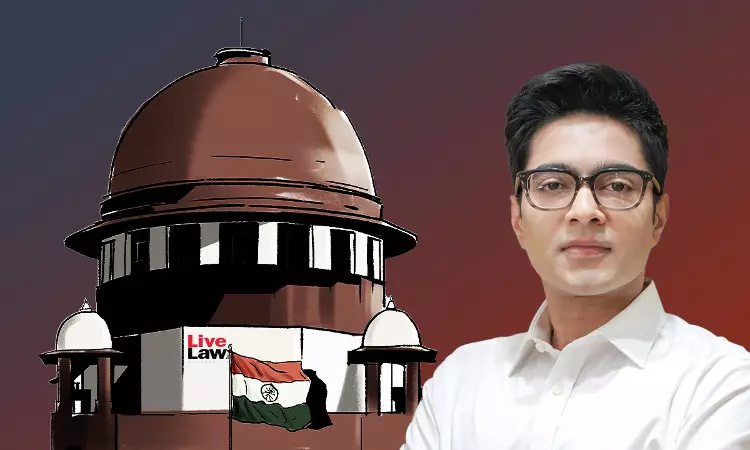Supreme Court Reserves Orders On Plea By Abhishek Banerjee, Wife Challenging ED Summons In Coal Scam Case
Debby Jain
13 Aug 2024 8:41 PM IST

Next Story
13 Aug 2024 8:41 PM IST
The Supreme Court today reserved verdict on a plea filed by TMC MP Abhishek Banerjee and his wife-Rujira Banerjee challenging Enforcement Directorate's summons in relation to a coal scam case. The duo, which claimed Calcutta to be its ordinary place of residence, challenged the ED summons insofar as they required attendance at New Delhi.A bench of Justices Bela M Trivedi and Satish Chandra...
